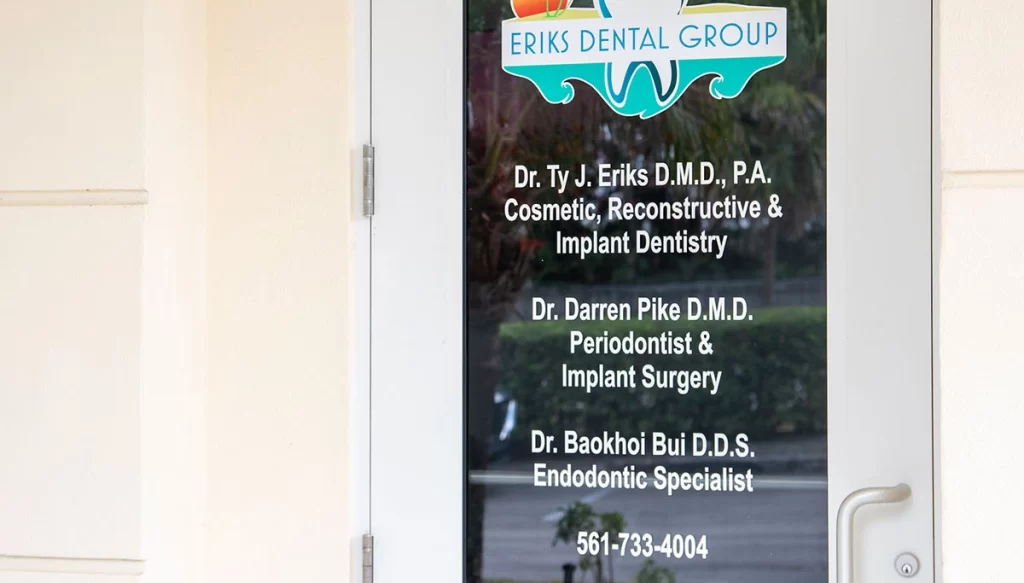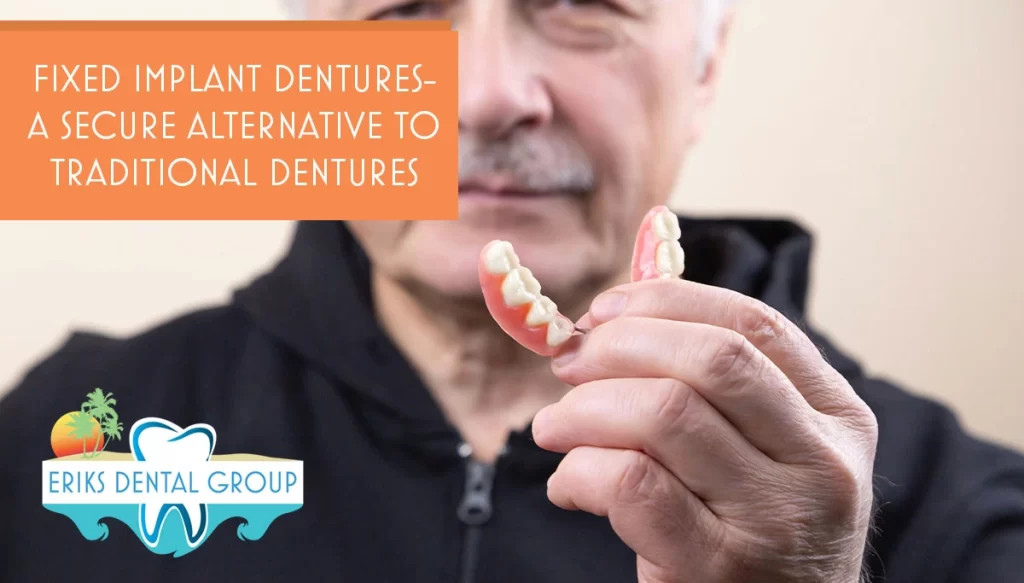Oral trauma, chronic illness, dental decay, gum disease, or lifestyle factors can lead to tooth loss. If you have a missing tooth, you need to replace it to prevent bone loss, maintain even bite, retain function, and restore your smile. Fixed implant dentures are among the most advanced and effective solutions for teeth replacement. This dental prosthesis is fixed to your jawbone with dental implants.
Unlike traditional dentures that can be removed, fixed implant dentures are affixed permanently to provide a more stable solution for tooth replacement. These dentures are usually made of porcelain or ceramic and can be removed by a dentist if necessary. If most or all of your teeth are missing and you have enough jaw bone to accommodate implants, your dentist may recommend permanent dentures. Here are the benefits of replacing your missing teeth with fixed implant dentures over other alternatives.
Appearance

Implant dentures look more natural than regular ones, providing an aesthetically pleasing smile. They restore your cheeks’ volume by providing support to prevent a sunken appearance that comes with tooth loss. This highly contributes to a fuller and more youthful look. Supporting facial features also enhance your confidence and smile.
Prevent Bone Atrophy
Bone atrophy refers to reduced bone density caused by excessive breakdown of the bone structure that makes jaws prone to fractures. It is mainly experienced by patients suffering from periodontal disease or tooth loss. Bone atrophy is gradual, and you may not notice you’re experiencing it until it’s too late. Some visible signs of bone shrinkage include wrinkles, premature aging, and an altered face, which can be bothering.
If you have missing teeth, getting permanent dentures restores jaw stimulation initially provided by the missing teeth. This encourages the jawbone to grow and fuse with the implant, preventing atrophy. As a result, fixed implant dentures help maintain the natural contours of your face and jawline.
Better Stability

Dental implants provide a proper foundation to fix dentures, reducing slippage and movement after installation. They are securely attached to bring you comfort to speak, bite, and eat with full functionality without worrying about them shifting or slipping around on top of your gums.
Installing permanent dentures involves fixing implants that take up to 6 months to familiarize with the tissues around them. This process is known as osseointegration, after which the implants will be fully integrated. Osseointegration makes fixed dentures virtually as stable as natural teeth, preserving your jawbone tissue and ensuring comfort. Their permanent nature also reduces the risk of accidentally losing or breaking them.
Convenience

Dental implants are much easier to maintain. They require the same hygiene and care as natural teeth, including flossing and brushing. You can follow this up with regular dental checkups, and they will serve you for years. On the contrary, conventional dentures require constant checkups for adjustments and dental repairs. You also need to remove them when cleaning and use a particular dental solution.
Durability
Regular dentures are prone to wear and tear, requiring replacements more often. On the other side, fixed dentures are designed to fuse with your jawbone to provide a long-lasting foundation for tooth replacement. Unlike traditional dentures, they are durable and withstand chewing and regular biting forces. With proper care, implant-supported dentures may last up to 20 years.
Signs You Need Implant Dentures
If you’re experiencing any of the following signs, it’s time to consult your dentist and inquire about implant-supported dentures.
- Regular dentures are affecting the quality of your life.
- You have severe periodontal disease or teeth loss.
- Your conventional dentures are getting loose and uncomfortable due to wear and tear.
- Your jawbone is affected after losing teeth.
- Missing teeth affect your smile.
If any of these signs resonate with you, consult your dentist to explore the benefits of implant-supported dentures and take the first step toward improving your quality of life.
What to Expected During the Process
If you’ve confirmed that fixed implant dentures are ideal, you need to know what to expect during the process. Since a healthy bone structure is essential for this process, some patients may require a dental bone graft before getting implants. The process for placing implant dentures is as follows:
- Initial consultation: During the first consultation, a dentist checks the condition of your jawbone and teeth. Your sinus cavities and nerves are located, and based on the results, the specialist advises you whether you need one graft. A soft jawbone calls for grafting to create a solid base for the implant to support the pressure exerted by the chewing action.
- Jawbone grafting: Discuss the suitable graft materials that work best for you with your doctor. These may be natural or synthetic bones. The transplanted bone may take several months to grow enough new bone to support dental implants, so be patient.
- Implant placement: Your oral surgeon cuts your gum open to expose the bone and drills holes where the implant metal post is placed. The post is placed deep into the bone to serve as the tooth root. You’ll still have a gap on the missing tooth, but a removable denture may be placed to enhance your appearance while you wait for the jawbone to grow.
- Jawbone growth: The bone grows and unites with the implant’s surface through osseointegration. This process takes several months and provides a solid base for the new set of artificial teeth, just as roots do for natural teeth.
- Abutment placement: After a successful osseointegration, you may need a minor surgery to place the piece where the crown will attach an abutment. It takes around two weeks to heal before the new teeth are attached. In instances when the abutment is attached to the implant metal post, this extra surgical step is forgone.
- Denture placement: Your oral surgeon takes impressions of your lower and upper arches and sends them to the laboratory for crafting into permanent dentures. Once ready, the artificial teeth are permanently screwed onto the abutment. You are informed on the hygiene and maintenance practices you need to incorporate to have your dentures serve you longer.
Explore The Option Of Fixed Implant Dentures With Eriks Dental Group, Boynton Beach

If you’re looking for a secure and lasting alternative to replacing missing teeth, consider fixed implant dentures. They look and feel like natural teeth, giving you comfort and long-term service. Book an appointment with a qualified dentist for a consultation to be assured of personalized care and the best treatment options for your needs.
If you’re in Boynton Beach, Eriks Dental Group offers more than just missing teeth replacement, from cosmetic dentistry to teeth cleaning, root canals, and much more. Request an appointment online or give us a call at 561-733-4004 to start your journey to a transformed smile.

